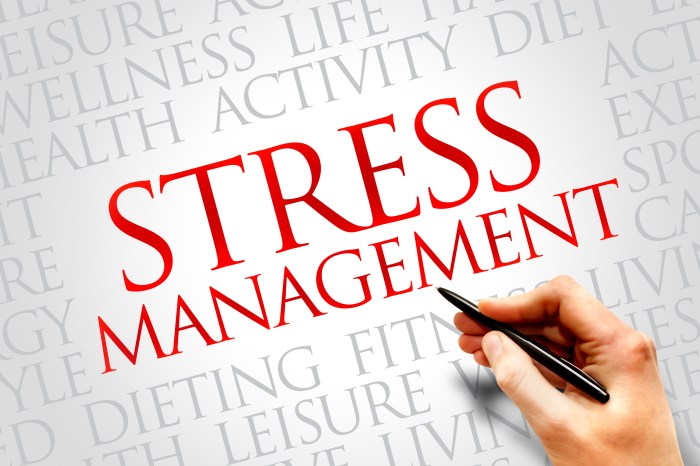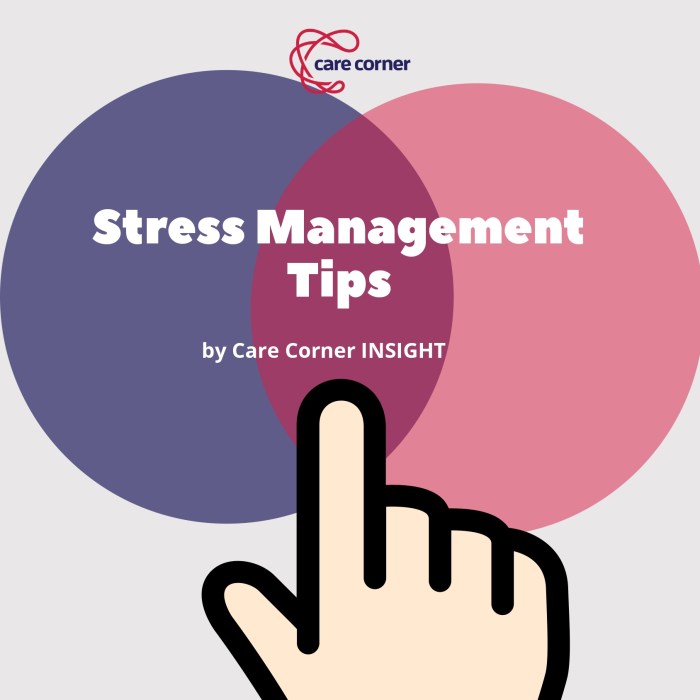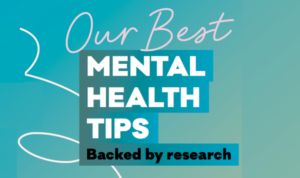Stress Management Tips: Mastering Your Mental Health Game dives deep into the world of stress management, offering insights and strategies to help you conquer daily challenges with finesse. From identifying stress triggers to creating a stress-free environment, this guide has got you covered.
Get ready to level up your stress management skills and unlock a whole new level of mental well-being.
Importance of Stress Management

Stress management is crucial for overall well-being as it helps individuals cope with the challenges of daily life, prevent burnout, and maintain a healthy work-life balance. When stress is left unmanaged, it can have detrimental effects on both physical and mental health.
Impact on Physical Health
- Chronic stress can lead to high blood pressure, heart disease, and weakened immune system.
- Stress can also contribute to digestive issues, muscle tension, and headaches.
Impact on Mental Health
- Unmanaged stress can result in anxiety, depression, and other mental health disorders.
- It can impair cognitive function, memory, and decision-making abilities.
Long-Term Benefits
- Incorporating stress management techniques into daily routines can improve overall quality of life.
- Reduced stress levels can enhance productivity, creativity, and focus.
- Long-term benefits include better relationships, improved sleep, and increased resilience to future stressors.
Identifying Stress Triggers

Identifying stress triggers is crucial for effective stress management. By recognizing what causes stress in your life, you can take proactive steps to reduce its impact and improve your overall well-being.
Common Stress Triggers
- Work-related stress: Deadlines, conflicts with colleagues, or high-pressure environments can all contribute to stress at work.
- Relationship issues: Problems with friends, family, or romantic partners can be significant stress triggers.
- Financial concerns: Money worries, debt, or job insecurity are common sources of stress for many individuals.
- Health problems: Dealing with chronic illness, injuries, or other health issues can lead to heightened stress levels.
Recognizing Early Signs of Stress
- Physical symptoms: Pay attention to signs like headaches, muscle tension, fatigue, or changes in appetite.
- Emotional changes: Mood swings, irritability, anxiety, or feeling overwhelmed can indicate rising stress levels.
- Behavioral cues: Increased use of substances, changes in sleep patterns, or social withdrawal may point to stress.
Tools for Identifying Stressors
Journaling: Keeping a daily record of your thoughts, emotions, and activities can help pinpoint specific stress triggers.
Self-reflection: Take time to assess your reactions to different situations and identify patterns that lead to stress.
Seeking feedback: Talk to trusted friends, family members, or a therapist to gain outside perspectives on your stress triggers.
Effective Stress Management Techniques
When it comes to managing stress effectively, there are various techniques that have shown to be beneficial in reducing stress levels and promoting overall well-being. These techniques include mindfulness, meditation, exercise, and deep breathing.
Mindfulness
Practicing mindfulness involves being fully present in the moment and non-judgmentally acknowledging your thoughts and feelings. By focusing on the present moment, mindfulness can help reduce stress and anxiety levels.
Meditation
Meditation is a practice that involves focusing the mind on a particular object, thought, or activity to achieve mental clarity and emotional calmness. Regular meditation has been shown to reduce stress, improve concentration, and promote a sense of inner peace.
Exercise, Stress Management Tips
Engaging in physical exercise is a great way to relieve stress and improve overall mood. Exercise releases endorphins, which are chemicals in the brain that act as natural painkillers and mood elevators. Whether it’s going for a run, practicing yoga, or lifting weights, regular exercise can help reduce stress levels.
Deep Breathing
Deep breathing techniques, such as diaphragmatic breathing or abdominal breathing, can help activate the body’s relaxation response and reduce stress. By taking slow, deep breaths, you can calm your mind and body, lower your heart rate, and decrease feelings of anxiety.
Creating a Stress-Free Environment: Stress Management Tips
Creating a stress-free environment is essential for maintaining overall well-being and productivity. By implementing simple strategies, you can transform your home or work space into a calming sanctuary that promotes relaxation and reduces stress levels.
Importance of Organization
Organizing your physical space can have a significant impact on your mental state. Clutter and disorganization can create feelings of overwhelm and contribute to stress. Take the time to declutter your surroundings by getting rid of items you no longer need and organizing your belongings in a way that is visually pleasing and functional.
Setting Boundaries
Setting boundaries is crucial for creating a stress-free environment. Learn to say no to tasks or commitments that do not align with your priorities or values. By establishing clear boundaries with others and yourself, you can prevent unnecessary stress and maintain a healthy balance in your life.
Maintaining Peaceful Atmosphere
To maintain a peaceful atmosphere amidst daily challenges, incorporate relaxation techniques into your routine. Practice deep breathing exercises, mindfulness, or meditation to help calm your mind and reduce stress levels. Surround yourself with calming elements such as soothing colors, plants, or aromatherapy to create a tranquil environment that promotes relaxation and well-being.


